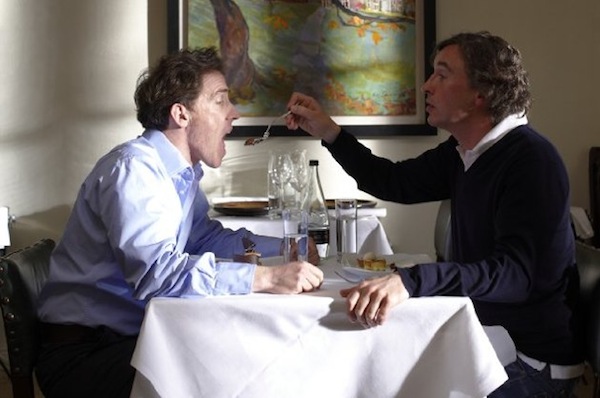 I have to admit that I really enjoyed Page One: Inside the New York Times. I was skeptical: an embittered journalism school drop out and ex-unpaid publishing intern, ready to rage against the machine of my idealistic youth. I expected the film to be a largely one-sided argument for the importance and vitality of the newspaper, in particular an institution like The Times, in securing our public right to be informed, as a standard of excellence in news reporting, a truth machine so finely crafted that no new age hippie dippy internet blogosphere bullshit could ever compete with it.
I have to admit that I really enjoyed Page One: Inside the New York Times. I was skeptical: an embittered journalism school drop out and ex-unpaid publishing intern, ready to rage against the machine of my idealistic youth. I expected the film to be a largely one-sided argument for the importance and vitality of the newspaper, in particular an institution like The Times, in securing our public right to be informed, as a standard of excellence in news reporting, a truth machine so finely crafted that no new age hippie dippy internet blogosphere bullshit could ever compete with it.
And I was right, about that. Director Andrew Rossi obviously believes in The Times, just as the staff and supporters he interviews believe in The Times. There are notable detractors, who balance the story without changing it. Plenty of talking head time is given to dissenters and realists who simply see The Times as a dinosaur baring his teeth for one last battle. But the atmosphere around the water cooler at the office is one of hope and optimism. Whether theirs is a story of strength and perseverance, or else desperation and denial, we are never really asked to wonder. We are asked to believe in The Times. And so, for a minute, we do.
All this is to say, finally, that Page One is a movie worth seeing—an entertaining and informative look at one of the last bastions of truth and justice, a great pillar of American Americanism, just as it is about to collapse beneath the weight of its own enormous fucking ego. The best of this story is played out in the fascinating character of Dave Carr, a crack addict turned media and culture columnist for The New York Times. Both straight-shooter and loose cannon, Carr has to be one of the last true heroes of American journalism, as evidenced by his thirst for knowledge, keen intuition, masterful turns-of-phrase, and delusions of grandeur. Carr is the erratically beating heart of this story; and whether this tale be called a tragedy or a triumph, we can rest assured that there will be a certain charmed beauty about it all, a cool wit that continues to assure us that everything is going to be okay.
(How did you like Page One? Vote here!)
This week, everything is going to be okay! The Cape Breton Island Film Series is taking a breather from all that heavy eyebrow lifting we’ve been doing, and offering up a delightfully simple, laugh-out-loud British comedy starring Steve Coogan and Rob Brydon. The Trip is a movie about a trip, in a car, across Northern England, with Coogan and Brydon exchanging insults and celebrity impressions along the way.
Some of you may already be familiar with this premise. Coogan and Brydon played similar characters in Michael Winterbottom’s Tristam Shandy: A Cock and Bull Story, which incidentally resembled their real-life relationship of comedic competition and one-up-man-ship. Winterbottom saw the sparks fly, and he has reunited the friends onscreen, this time without all that tedious plot getting in the way of their hilarious jokes.
Accented with a beautiful cinematic view of the English countryside and equally magnificent shots of delicious foodstuffs, The Trip manages to be much more than a goofy gigglefest—though that, we’re promised, it will be. More than that, though, the film explores an untold depth of friendship, it plays with a certain twist of realism, and it tempts our eyes with beautiful plates of food, which Coogan and Brydon never shut up long enough to fully appreciate.
Oh yeah, The Trip is a film about food! Coogan is commissioned as a food critic, and when his girlfriend backs out of the trip, he reluctantly invites his frenemy Brydon along for the ride. That is about as plot-heavy as it gets, and considering how little the film’s central figures actually take notice of the food, it seems only fitting that we nearly forget to mention it.
We’re too busy laughing.
If you think British humour is not your cup of tea, we strongly suggest you try the Kool Aid.
The Trip plays tonight, 7pm at Empire Theatres Studio 10.

